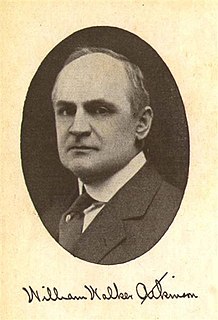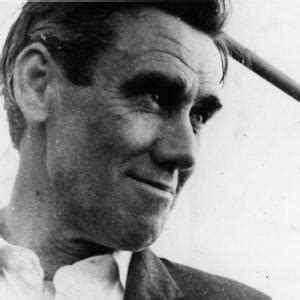A Quote by Jim Harrison
When we die we are only stories in the minds of others, I thought
Related Quotes
We are sending out thoughts of greater or less intensity all the time, and we are reaping the results of such thoughts. Not only do our thought-waves influence ourselves and others, but they have a drawing power - they attract to us the thoughts of others, things, circumstances, people, 'luck', in accord with the character of the thought uppermost in our minds.
Knowing what [Christ] knew , knowing all about mankind--ah! who would have thought that the crime is not so much to make others die, but to die oneself--confronted day and night with his innocent crime, it became too difficult to go on. It was better to get it over with, to not defend himself, to die, in order not to be the only one to have survived, and to go elsewhere, where, perhaps, he would be supported.
When we die, these are the stories still on our lips. The stories we’ll only tell strangers, someplace private in the padded cell of midnight. These important stories, we rehearse them for years in our head but never tell. These stories are ghosts, bringing people back from the dead. Just for a moment. For a visit. Every story is a ghost.
The agentive mind is not only active in nature, but it seeks out dialogue and discourse with other active minds. And it is through this dialogic, discursive process that we come to know the Other and his points of view, his stories. We learn an enormous amount not only about the world but about ourselves by discourse with Others.
Each of us is comprised of stories, stories not only about ourselves but stories about ancestors we never knew and people we've never met. We have stories we love to tell and stories we have never told anyone. The extent to which others know us is determined by the stories we choose to share. We extend a deep trust to someone when we say, "I'm going to tell you something I've never told anyone." Sharing stories creates trust because through stories we come to a recognition of how much we have in common.
I thought I was going to die a few times. On the Freedom Ride in the year 1961, when I was beaten at the Greyhound bus station in Montgomery, I thought I was going to die. On March 7th, 1965, when I was hit in the head with a night stick by a State Trooper at the foot of the Edmund Pettus Bridge, I thought I was going to die. I thought I saw death, but nothing can make me question the philosophy of nonviolence.
AS SOMBRAS DA ALMA. THE SHADOWS OF THE SOUL. The stories others tell about you and the stories you tell about yourself: which come closer to the truth? Is it so clear that they are your own? Is one an authority on oneself? But that isn't the question that concerns me. The real question is: In such stories, is there really a difference between true and false? In stories about the outside, surely. But when we set out to understand someone on the inside? Is that a trip that ever comes to an end? Is the soul a place of facts? Or are the alleged facts only the deceptive shadows of our stories?






































